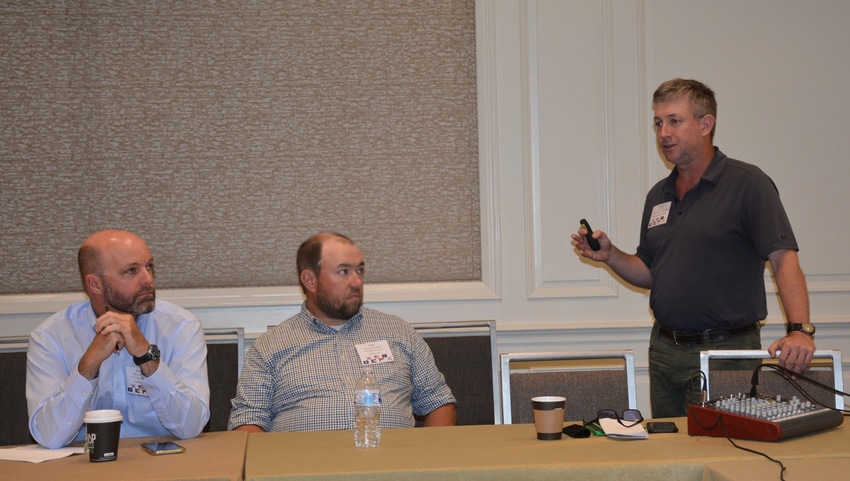
With cotton seed costing up to $600 per bag, steps must be taken to ensure that the seed farmers plant is of the highest quality which is one of the reasons the North Carolina Department of Agriculture launched its cotton seed testing pilot program in 2020.
The program was launched last year due to problems with low cool germination rates in some lots of cotton seed over the past few years. The program is designed for the department’s seed and fertilizer field staff to evaluate both the warm and cool germination of cotton seed planted across North Carolina.
At the mid-year board meeting of Southern Cotton Growers at the Ritz-Carlton in Amelia Island, Fla. July 21, Sandy Stewart, North Carolina’s assistant commissioner of agriculture, gave an update on the program’s second year. Stewart said the program was a success due to the voluntary cooperation of seed companies, farmers, and Extension agents.
In the program’s second year, cotton seed samples were collected from Dec. 30, 2020 to May 13, 2021. The NCDA&CS Plant Industry Division collected samples from 615 distinct cotton seed lots in North Carolina. The cotton seed samples were tested and separated in germination percentages for both warm and cool germination.
“Just about all the seed we encountered is labeled at 80% or above. We did encounter some seed lots where the actual germination value was below 80%,” Stewart said.
The results indicated that 96% of cotton seed samples in North Carolina for the 2021 planting season had a warm germination percentage of 75% or above. Based on the results, 88% of cotton seed samples collected in the state for the 2021 growing season had a cool germination percentage of 50% or above.
Stewart said results were reported on the online cotton seed testing portal which was accessed 410 times by cotton farmers, Extension agents and seed company personnel. He added that those involved with the program liked what they saw and the service it provided.
Stewart emphasized that the program would remain a voluntary program. He said seed companies that do business in North Carolina support the program. “We may have to go down the regulatory path one day, but as long as we can avoid additional regulations, we are better off. I think education before regulation is always the way to go.”
Stewart emphasized that by and large, the vast majority of seed sold and planted in North Carolina is good, but he said the program is still needed to ensure transparency and provide assurance that cotton seed planted in North Carolina will germinate.
“I think we don’t know how much better it could be because there is a lot more we don’t know than we do know about seed physiology and seed quality. The more we go down this path, hopefully, we can get some of the seed technology, seed physiology programs like at NC State reinvigorated. I think we’ll learn how much better seed quality can be,” Stewart told Southeast Farm Press after the board meeting.
“The program is needed. If you don’t have a stand, you don’t’ have a crop. The cost of cotton seed is such a huge part of the input cost. The most expensive day in that cotton crop’s life is the day it’s planted. Seed quality is everything. I think the more information farmers have, the better,” he said.
In his comments at the meeting, North Carolina State University Extension Cotton Specialist Guy Collins emphasized that the “Lion’s share of cotton seed that comes into our state is very good quality.”
“What concerns me as an Extension specialist, and I’m only speaking for myself right now, are these very infrequent occasions when poor-quality seed enters the state to be bought and planted by a grower,” Collins said.
Collins emphasized that both cool and warm germination problems are limited, but must be monitored, particularly since cotton farmers invest so much money in cotton seed. “If one of these bad seed lots ends up on your farm, it’s 100% your problem so I applaud Sandy (Stewart), Phil Wilson (director of the Plant Industry Division), and the Department of Agriculture inspectors for doing such a phenomenal job on this program,” Collins said.
About the Author(s)
You May Also Like






